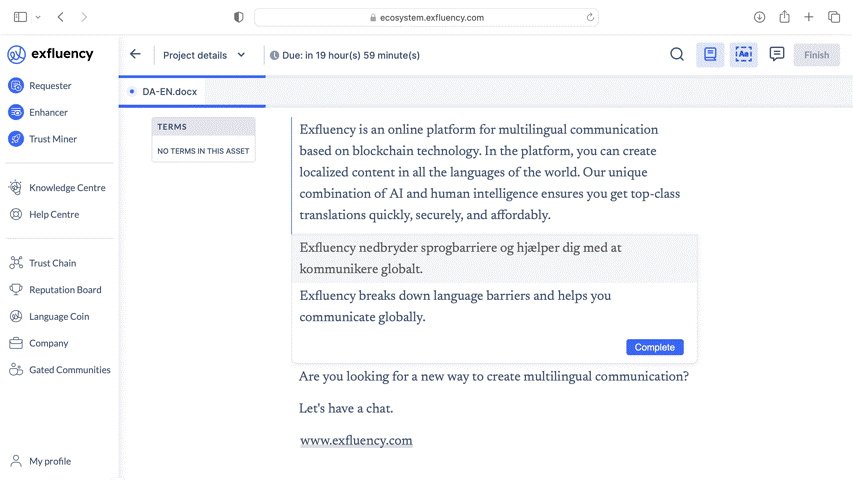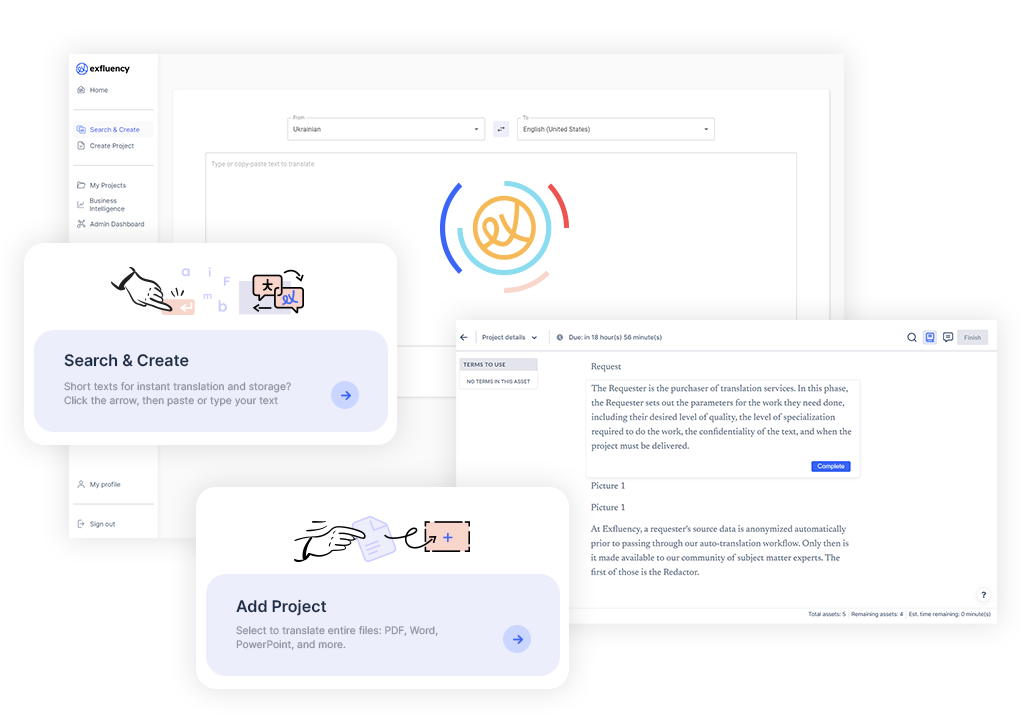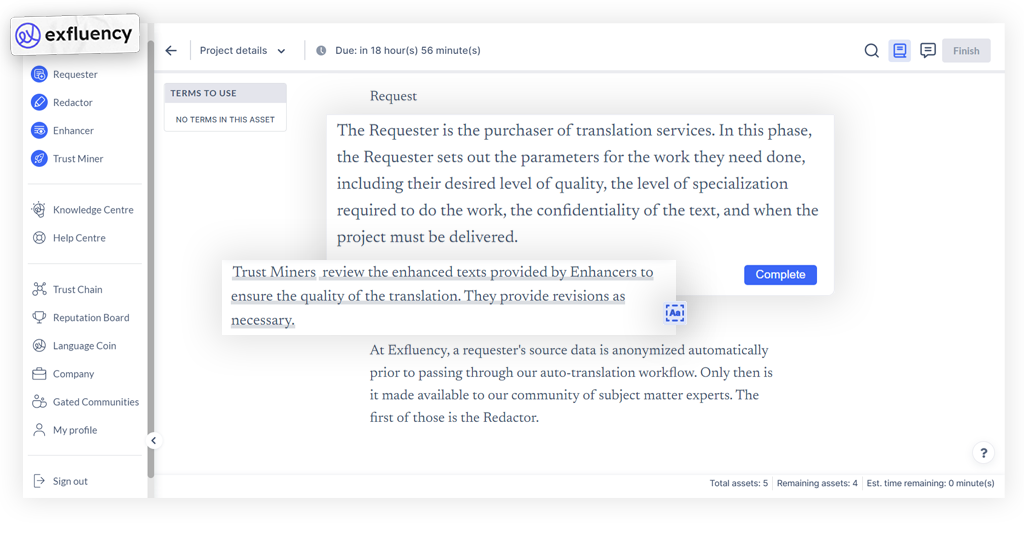Excellent communication starts with the right tech
Generate multilingual content within seconds with our
AI-powered language solutions: Just drop your files into the Exfluency ecosystem and let our best‑in‑class language tech do the rest.
Generate multilingual content within seconds with our AI-powered language solutions!
Just drop your files into the Exfluency ecosystem and let our best-in-class language tech do the rest.
Next-level teams
need next-level tech
Our AI-powered language and security solutions give you automated translation in a matter of seconds.
Open your project in our editor and enhance it
– or collaborate with a colleague.
Have our language professionals perfect your text
while you survey progress, price, and delivery.
Built on data security
Fast. Accurate.
Secure.
Drive your enterprise’s efficiency, productivity,
and sales with multilingual communication.
We are a 100% scalable platform that supports
content production at the highest level.

Powered by tech.
Perfected by people.
The Exfluency™ Factor • The percentage of words that needs to be changed after Immediate Translation to produce a truly excellent result.
Happy community • More than 98% of our daily users say that they like working in the Exfluency™ editor.
Human Parity • The percentage of AI‑generated data that equals to or is better than the quality provided by a human.*
Get started today
Exfluency™ offers affordable AI-powered language and security solutions with global talent networks for organisations of all sizes.


